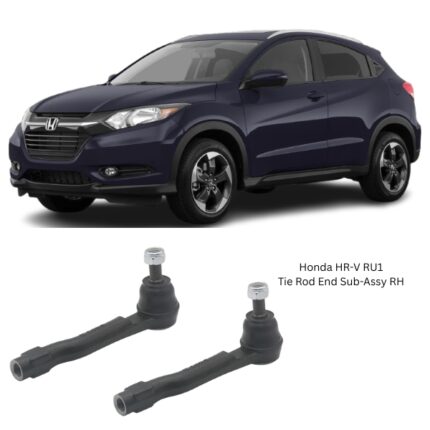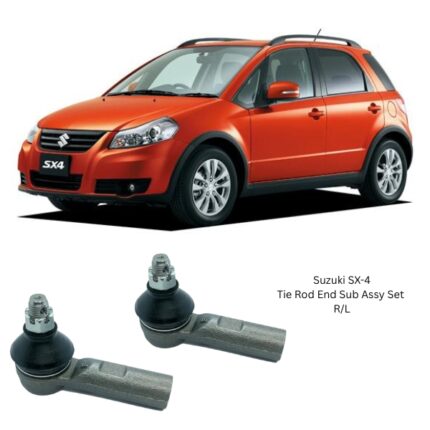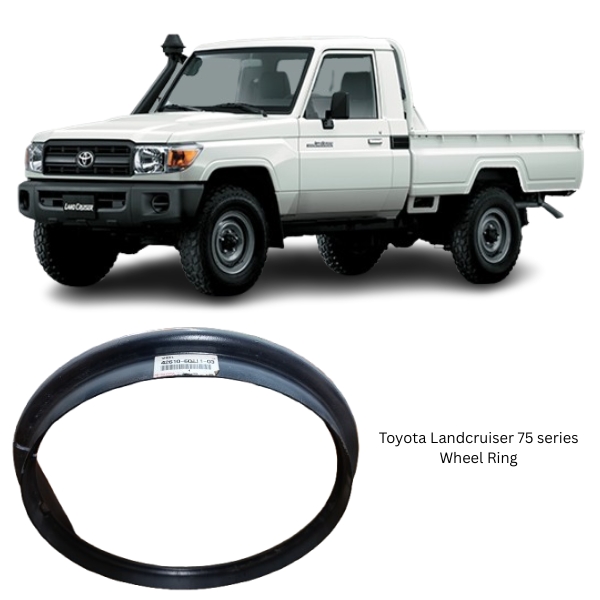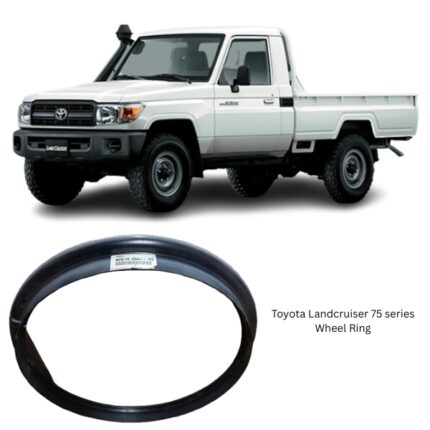-10%
Get Toyota Landcruiser 75 Series Genuine Wheel Ring 42610-60111 in Kenya
The Genuine Wheel Ring is a highly engineered component of the vehicle’s wheel and hub assembly. It serves multiple critical functions ranging from providing structural support and balance to integrating seamlessly with the braking, suspension, and sensor systems. Designed and manufactured to Original Equipment Manufacturer (OEM) standards, the genuine wheel ring guarantees superior fit, strength, and performance consistency across a wide range of driving conditions.
Though often overlooked compared to larger components such as rims or tires, the wheel ring plays a vital role in the longevity and safety of the wheel system. Built with exact tolerances and durable materials, a genuine wheel ring ensures precise alignment, optimal load distribution, and minimal wear on adjacent parts.
Primary Function of the Wheel Ring
A wheel ring is typically mounted between the wheel hub and the rim or within the braking or sensor systems (in certain designs). Depending on vehicle application and construction, it may also refer to the ring-shaped structure that integrates with tone rings or hub-centric rings.
Key Functional Roles:
-
Provides Structural Reinforcement
Offers added support to the wheel’s center, ensuring proper seating of the wheel on the hub and even distribution of rotational loads. -
Assists in Wheel Alignment
Helps center the wheel perfectly onto the hub, reducing vibrations and preventing imbalances during motion. -
Contributes to ABS and Traction Control Operation
In some models, the wheel ring includes a tone ring (reluctor ring) that works in conjunction with ABS sensors to monitor wheel speed. -
Protects Adjacent Components
Acts as a buffer or interface that prevents direct metal-to-metal contact between the wheel and hub, minimizing wear, corrosion, and deformation. -
Ensures Vibration-Free Rotation
A correctly positioned and genuine wheel ring helps reduce steering wheel shake and ensures smoother handling, especially at higher speeds.
Design and Engineering
The Genuine Wheel Ring is crafted with precision to ensure a perfect match with the specific hub and wheel specifications. It is produced using advanced manufacturing techniques such as CNC machining, die-casting, or forging to achieve the tight tolerances and structural rigidity required for modern automotive systems.
Core Design Features:
-
Circular Geometry
Designed to precisely match the hub bore diameter and wheel center bore, ensuring secure placement and exact centering. -
Flat or Flanged Profile
Depending on its application, the wheel ring may feature a flat ring profile or incorporate flanges for added surface contact and retention. -
Reinforcement Ridges or Ribs
For added rigidity and reduced flex under heavy loads. -
Corrosion-Resistant Coating
Many genuine wheel rings include zinc plating, anodized finishes, or other treatments to prevent rust and corrosion from environmental exposure. -
Sensor Compatibility
In wheel speed sensor applications, tone rings are integrated into the wheel ring design, complete with evenly spaced teeth or magnetic strips.
Materials and Construction
Genuine wheel rings are constructed from high-quality materials selected for strength, durability, and resistance to wear and fatigue. Material choice is heavily influenced by the specific function and location of the wheel ring within the wheel assembly.
Common Materials:
-
Aluminum Alloy
Lightweight, corrosion-resistant, and often used in performance applications. -
Carbon Steel or High-Strength Steel
Durable and strong, ideal for heavy-duty applications or where significant load-bearing capability is needed. -
Stainless Steel
Offers excellent corrosion resistance and is used in environments with exposure to road salts and moisture. -
Reinforced Polymer (in certain sensor applications)
Non-conductive and resistant to magnetic interference, used for integration with electronic systems.
Benefits of a Genuine Wheel Ring
Choosing a genuine (OEM-specification) wheel ring over aftermarket alternatives offers multiple advantages:
-
Exact Fitment
Manufactured to match original vehicle design specifications, eliminating installation issues and misalignment. -
Long-Term Durability
Engineered to withstand extreme heat, pressure, and rotational forces without degradation. -
System Compatibility
Fully compatible with integrated ABS, traction control, or electronic stability systems when applicable. -
Improved Driving Experience
Helps ensure a smoother ride, better handling, and improved braking response. -
Corrosion Protection
High-quality finishes and treatments ensure resistance to rust, especially in harsh environments. -
OEM Quality Assurance
Genuine parts pass rigorous quality control and are certified for safety, performance, and reliability.
Common Applications and Use Cases
-
Hub-Centric Rings: Fills the gap between aftermarket wheel center bores and vehicle hub diameters.
-
Tone Rings: Incorporated in ABS systems to provide rotational speed data to wheel speed sensors.
-
Spacer Rings: Used to adjust wheel offset or spacing between hub and wheel.
-
Reinforcement Rings: Added to steel or alloy wheels to strengthen the mounting area and reduce deformation.
Signs of Wear or Malfunction
Although wheel rings are designed to last the life of the vehicle, certain conditions may lead to premature wear or failure:
-
Corrosion or Rust Build-Up
May cause improper seating of the wheel and lead to vibrations or wheel wobble. -
Physical Deformation
Caused by over-torquing lug nuts or impact damage from potholes or curbs. -
Cracking or Fracturing
Often due to inferior materials or fatigue from high-stress usage. -
ABS Light Activation
In tone ring applications, a damaged ring may disrupt signal transmission to the wheel speed sensor.
Installation and Handling
Genuine wheel rings should always be installed with care to prevent distortion or misalignment. Installation should follow manufacturer specifications regarding torque values, surface preparation, and ring orientation.
Key Installation Tips:
-
Clean Hub and Wheel Surfaces Thoroughly
Remove rust, dirt, or debris before seating the wheel ring. -
Use Anti-Seize on Metal Contact Points
Prevents future corrosion and eases removal. -
Ensure Proper Alignment
Misalignment may lead to wheel vibration, uneven tire wear, or improper sensor readings. -
Avoid Excessive Force
Never hammer or over-tighten during installation. Use hand tools with recommended torque settings.
Maintenance Recommendations
-
Inspect During Tire Rotations or Brake Service
Look for signs of rust, cracks, or deformation. -
Keep Components Clean and Dry
Especially important in vehicles driven in wet, salty, or dirty conditions. -
Replace Damaged Rings Immediately
Driving with a cracked or corroded wheel ring may compromise wheel fitment and safety.
Follow us on Facebook for more parts.





Reviews
Clear filtersThere are no reviews yet.